We use cookies to improve your experience. By accepting you agree to our cookie policy

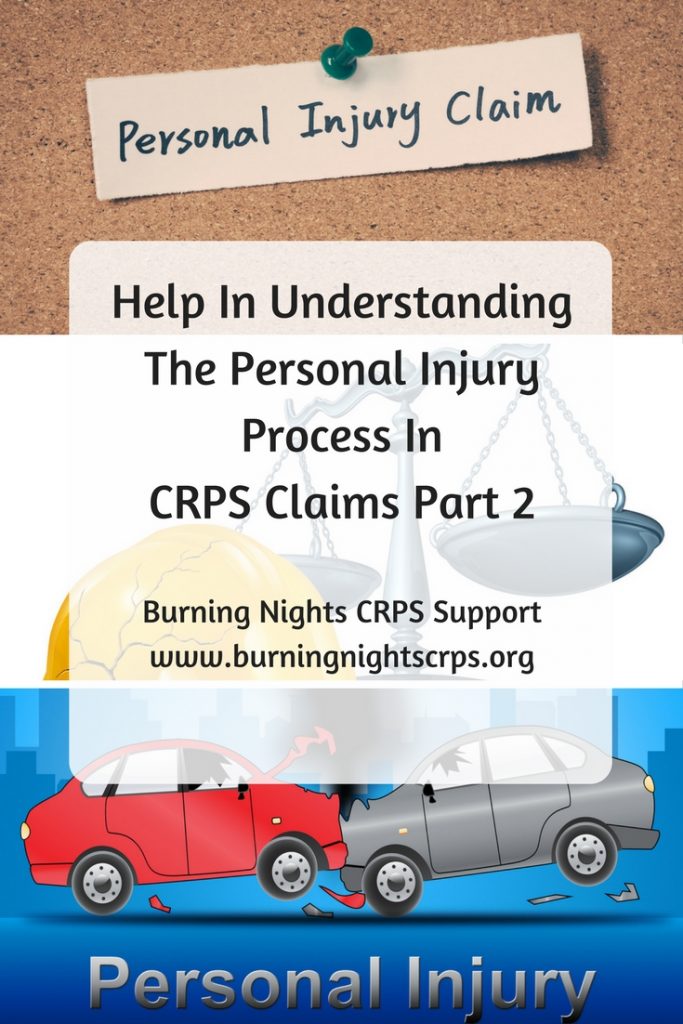
The basic rule is that an action for claiming damages for personal injuries (or death) must be commenced (the claim must be issued at Court) within three (3) years of the date of the accident or from the date of knowledge. i.e. If proceedings are not started within that 3-year period, the claim will be “statute barred” and cannot proceed, whatever its merits.
If the person bringing the claim (the “Claimant”) did not know of the injury or of the negligence of the other person or party at fault (the “Defendant”), then the three-year period does not start running until the date the knowledge was acquired. Knowledge is acquired when the Claimant first knew that his injury was significant and attributable to an act (or omission) of the Defendant.
There are a number of exceptions to this general rule, for example where the person on whose behalf the claim is being pursued is a child (a “minor” under the age of 18) or is a protected party (someone who lacks capacity to conduct legal proceedings) then the three-year period begins from when the minor reaches 18 years of age or from when the protected party regains capacity. In some cases, it can be difficult to know whether a claim is statute barred and where this is the case your solicitor will advise you.
The Court has a general discretion to extend the three-year limitation period and allow a late claim, but only if it would be fair to both sides to do so, again your solicitor can advise you on this.
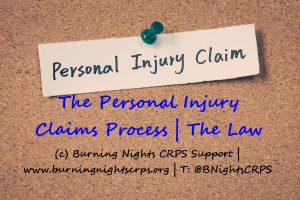
The legal basis of any claim for Personal Injury is likely at least in part to be under the law of negligence.
To recover compensation you will need to show it is more likely than not that:
We know many of you are unsure as to what “negligence” actually means.
Negligence can best be described as a breach of duty of care which results in loss or injury to another to which a duty of care is owed. It will usually involve doing something that an ordinary and reasonable person would do or should not have done.
For example, where a driver fails to brake in time such as to cause a collision or where a Council fails to repair a pavement properly, resulting in an injury to a pedestrian.
The elements of negligence that must be established in every negligence case are:
This will not always be straightforward but your Solicitor will guide you through the process and assess very quickly whether or not you have a case.
In some cases both parties can be guilty of negligence. A good example is a cyclist who comes into collision with a vehicle and who suffers a head injury due to not wearing a helmet. Another example is a driver who suffered injury due to not wearing a seat belt. In both cases, whilst the cyclist and the driver would have sustained some injury, the extent of the injury would not have been as severe had they been wearing the correct equipment.
So, If a Judge decides that the cyclist for example was 25% responsible to the extent of his injury due to not wearing a helmet, then he or she will lose 25% of the compensation. Again, this is an area where your solicitor will be able to advice you further.
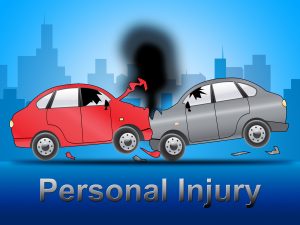
The investigation process is regulated by the Civil Procedure Rules which states that the Personal Injury Protocol must be followed. The Protocol provides a procedure for investigating cases and sets out the proper behaviour for both parties. It provides for the prompt disclosure of documents and records by the Defendant and provides the Defendant an opportunity to explain what has gone wrong, and if possible to resolve the case without necessarily going to court.
If you have been advised that you have a claim, your solicitor will start by writing to the other side and setting out the facts of the matter, why it is believed it was their fault, and what loss it is believed you have suffered and asking for copies of documents and records on the basis that there may be a claim against the proposed Defendant. This letter is known as a “Pre action letter” or more correctly a “Letter before action”.
The Defendant has 21 days to acknowledge the letter and then 3 months after that to investigate and respond in full, either admitting liability, denying liability or alleging contributory negligence. Where Liability is disputed or contributory negligence alleged, then the Defendant must provide relevant documents in support of its stance.
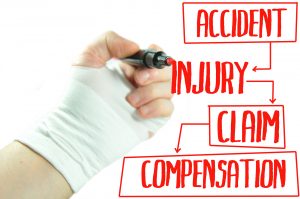
At an early stage your Solicitor will also begin to gather basic information from you (which may take several hours of work) and will then prepare a witness statement. The Witness statement may have to be updated several times throughout the course of the claim. Once approved and disclosed to the Defendant, the statement will become a formal document and will be used as evidence in Court should there be Trial, therefore it is important you ensure it is correct.
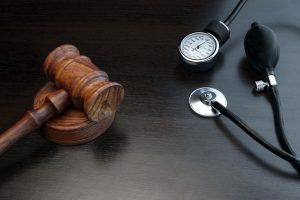 Your Solicitor will need to obtain an expert report as to the extent of your injury and how long the injury is expected to last for. The report prepared by the expert will enable you Solicitor to value how much your claim is worth. The experts’ report will form evidence in your claim and will be disclosed to the Defendant. It will be used in evidence should your claim proceed to Court and it is important that you read and understand the report before it is disclosed to make sure it is correct.
Your Solicitor will need to obtain an expert report as to the extent of your injury and how long the injury is expected to last for. The report prepared by the expert will enable you Solicitor to value how much your claim is worth. The experts’ report will form evidence in your claim and will be disclosed to the Defendant. It will be used in evidence should your claim proceed to Court and it is important that you read and understand the report before it is disclosed to make sure it is correct.
The expert will be chosen by your solicitor depending on the type of injury you have sustained. It is important to note that whilst your solicitor will instruct the expert, the expert is independent and their duty is first and foremost to the Courts.
When you attend for your examination the expert will need to see all your medical records and may also ask you to bring with you any medication you are taking and any aids or equipment you are using. It is important you tell the expert about every symptom you have so that the expert can prepare a full and comprehensive report.
It is important to note that if your injury is serious or your presentation is complicated, your solicitor may need to involve various medical experts and even non-medical experts so you may see several experts in order for reports to be prepared. For example, where someone has an accident at work and suffers an injury to their hand or foot they may initially require a report from an Orthopaedic Surgeon. Let’s then say the injury does not heal as expected and the injured person continues to suffer pain, your solicitor may then get a report from a pain management specialist. If this same accident causes depression like symptoms, a further report may be obtained from a Psychologist or Psychiatrist. Let’s then continue with this example and say that the injured person is unable to return to work, a further report from an employment specialist may be obtained especially if you are unable to go back to the type of work you had been doing because of the injury. Where you require aids or equipment, a report from an Occupational Therapist may also be obtained.
It is very rare to ask doctors who are friends of clients or who are already treating them to advise as experts must be seen to be totally independent.
If the Defendant agrees the experts, they may then be instructed in effect on behalf of both of you and the Defendant.
If not, the Defendant may be entitled to obtain its own experts and again, this will mean that their experts will need to examine you as well. It’s important to note that the Defendant must also be given the opportunity to gather evidence to support their case.
 It would be wrong to give the impression that video surveillance of Claimants by Defendants is widespread. In certain cases the Defendants representatives will take the view that it is worthwhile investing in the cost of surveillance to try and discover fraud which, if proven, would lead to a reduction in the damages they have to pay. This is usually what they are looking for as the surveillance rarely leads to the claim being thrown out altogether. The Defendants choose the cases by reference to the injury. If the Defendant is the Claimant’s employer, the insurer may be acting on information from the employee’s colleagues who may not believe that you are telling the whole truth or on “tip-offs” from neighbours that can lead to surveillance.
It would be wrong to give the impression that video surveillance of Claimants by Defendants is widespread. In certain cases the Defendants representatives will take the view that it is worthwhile investing in the cost of surveillance to try and discover fraud which, if proven, would lead to a reduction in the damages they have to pay. This is usually what they are looking for as the surveillance rarely leads to the claim being thrown out altogether. The Defendants choose the cases by reference to the injury. If the Defendant is the Claimant’s employer, the insurer may be acting on information from the employee’s colleagues who may not believe that you are telling the whole truth or on “tip-offs” from neighbours that can lead to surveillance.
Surveillance, if done in a proportionate manner with respect for the Claimant’s private life will generally be permitted. There are rules about how video evidence can be used in a claim. Defendants give a general warning at the beginning of the case that surveillance may be undertaken where necessary and only for the purpose of considering whether presentation by a claimant is genuine. Even if there is not an individual warning given in your case you should be aware that surveillance may still be used. If you have reason to believe that you are the subject of video surveillance you should contact your solicitor dealing with your claim who will take certain steps with regard to the Defendants.
Please note that surveillance can be carried out even after a trial has been concluded and there is case law of Judgements being overturned and claimant’s having to repay money back to Defendant. Remember, most trials are covered by local newspapers and nowadays information is freely available through the Internet, especially where there have been large settlements.
It is routine for Defendants to do Internet searches on Claimants and look at social network sites. Your legal remedies in this regard are very limited. In general terms we would just caution you to remember that information on the Internet is available for all anyone to see.
A defendant may make a voluntary interim payment at anytime, including before proceedings have been issued. The Claimant may find himself in financial hardship following an accident. He/she may have a loss of income or a variety of needs that will need to be addressed swiftly. Good examples of where an Interim payment can be requested is where the Claimant is unable to work due to an accident and therefore needs some form of income to continue to pay household bills etc. or where the claimant requires care and assistance, equipment, medication or accommodation following an accident. A Claimant can make an application for an interim payment at any time after proceedings have been issued and the time provided for filing an acknowledgment of service has expired.
The court can only order a defendant to make an interim payment in one of the following situations:
Please do remember that where an interim payment has been made, the amount will be deducted from any final award to pay money or damages.
Help In Understanding The Personal Injury Process
To understand more about the initial steps of starting a personal injury claim please read our 1st blog entitled Help In Understanding The Personal Injury Process
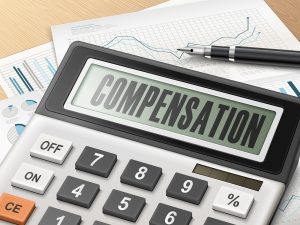
Damages awarded in a claim will be “general” damages, i.e. which compensates for the Pain, Suffering and Loss of amenity or in layman’s terms the injury element of your claim. In addition, you may also receive “special” damages, which compensates you for other losses in addition to the actual injury.
General damages are awarded by the Courts, according to the Judicial College Guidelines. This is a set of guidelines which dictate an award of damages depending on the type of injury.
The other aspect of a compensation award would be “special” damages which will include compensation for future loss. This might be extra travelling, medication, nursing, housing or equipment expenses or loss of earnings.
In working out what is claimable by way of “special” damage, the object of the exercise is to put you as nearly as money can in the same position as if the accident had not happened. Therefore, in theory at least, the injured Claimant is supposed to leave with no penny more nor a penny less than the position that they were in had the injury never occurred. You must never be financially better off as a result of a compensation claim.
You will need to be able to produce the receipts for things you have bought and services you have used as a result of your injury/disability. It’s a good idea to try and list, as soon as you can, details of past losses and expenses and to keep your list updated (with receipts) of current expenses.
If you have been unable to look after yourself due to your injuries, you may receive care from a friend or family member. The value of that care will be calculated and included in your claim where relevant. A lot of people assume that care from friends or family cannot be recovered but just because money has not changed hands, does that mean that the “cost” of that care cannot be quantified or claimed. It is important to note however, that if you do recover payment in respect of care given to you, that part of the damages will be held by on “Trust” for the care giver. Your Solicitor should advise you of this at the time.
All the information is then gathered in a schedule of special damage and future loss which will be sent to you for approval before it is disclosed to the Defendant.
Most cases are settled by the Defendants paying damages. They may not be prepared to admit fault when they do so. Settlement may take place by way of written offers or at a Joint Settlement Meeting where the parties will meet and try and negotiate a mutually acceptable settlement.
Many settlements can take place in the week or even the day before (or day of) trial. Your Solicitor should advise you to accept a settlement if it is believed it is within the range of damages a Judge would probably award at trial.
Settlement can be by way of a lump sum payment, by way of structured settlement, by way of Periodical Payment Order or a Provisional Damages order.
The mechanism of a structured settlement is that part of the damages are used by the Defendant to purchase, from an insurer, an annuity to fund annual payments for the Claimant as damages by instalments. Structured settlements are less popular now in light of Periodical Payments.
These were introduced by the Courts Act 2003 and concern damages for future loss. The legislation allows awards for future losses, for example care costs, to be paid by the Defendant to a Claimant on a “periodical” basis for their lifetime. Periodical payments may be appropriate in situations where a lump sum award is difficult to formulate because of an uncertain prognosis as to the claimant’s life expectancy.
If a claimant’s condition is likely to deteriorate it would be unfair on the claimant if the court made an award based on their current condition which could leave them under compensated if their health worsened. At the same time, it would be unjust on the defendant to make a lump sum award on a future condition which may never develop.
The court therefore has the power to award provisional damages in cases where there is a chance that the claimant will develop a specific serious condition or suffer a deterioration in their mental or physical condition. If the claimant suffers this condition or their condition deteriorates they are able to return to the court to apply for a further damages award.
Your Solicitor will discuss the suitability of these settlement options as your case proceeds.
Enjoyed this blog – Help In Understanding The Personal Injury Process in CRPS Claims Part 2? Why not check out our 1st blog in this series – Help in understanding the personal injury process? In Part three of this Blog series we will explain the process of going to Trial. Watch this space………
Last Updated: 19/06/2019
We use cookies to improve your experience. By accepting you agree to our cookie policy
 £
£